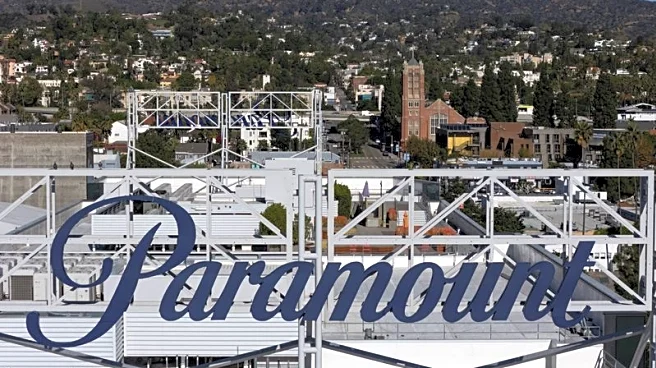What's Happening?
The Department of Homeland Security (DHS) has revoked the visa of British journalist Sami Hamdi, citing allegations of supporting terrorism and undermining American national security. Hamdi, who is the editor-in-chief
of The International Interest, was detained at San Francisco International Airport. The Council on American-Islamic Relations (CAIR) confirmed that Hamdi remains in custody and is not yet deported, with legal efforts underway to address what they describe as an injustice. The revocation follows calls from activist Amy Mek, who accused Hamdi of being a national security threat and linked him to the Muslim Brotherhood. DHS spokesperson Tricia McLaughlin stated that under President Trump, individuals who support terrorism will not be allowed to work or visit the U.S.
Why It's Important?
This development highlights ongoing tensions between national security measures and free speech rights. The revocation of Hamdi's visa has sparked criticism from civil rights groups like CAIR, who argue that the action is a response to Hamdi's critical stance on the Israeli government, thus infringing on free speech. The incident underscores the broader implications of the Trump administration's immigration policies, which have been criticized for targeting individuals based on their political views or criticisms of U.S. allies. The case also raises questions about the balance between security and civil liberties, particularly in the context of international journalists and activists visiting the U.S.
What's Next?
The future of Hamdi's case remains uncertain as legal proceedings continue. CAIR and other advocacy groups are likely to increase pressure on the U.S. government to release Hamdi and address what they see as a violation of free speech rights. The situation may also prompt further debate and scrutiny over the Trump administration's immigration and national security policies, especially concerning their impact on international relations and freedom of expression.
Beyond the Headlines
The revocation of Hamdi's visa could have long-term implications for international journalists and activists seeking to enter the U.S. It may deter individuals from visiting the country for fear of similar actions, potentially impacting the U.S.'s reputation as a bastion of free speech. Additionally, the case may influence future policy discussions on how to balance national security with the protection of civil liberties, particularly in a global context where political dissent is increasingly scrutinized.











